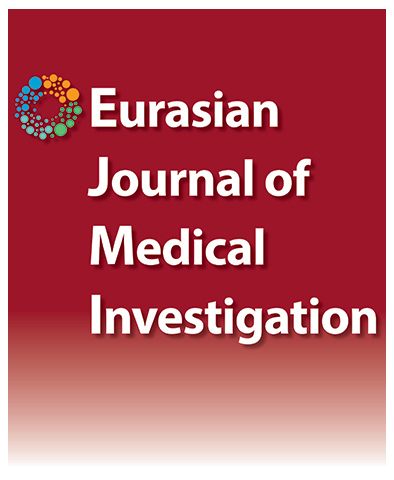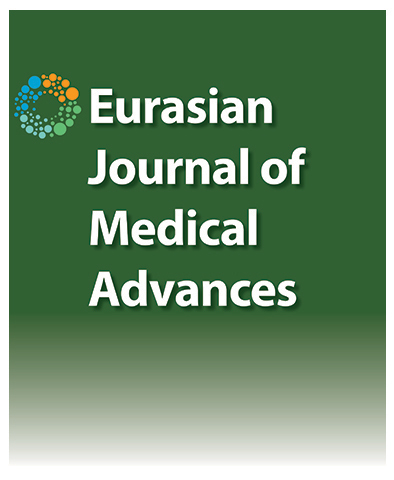The Association Between Albumin Level and Mortality in Patients Hospitalised in Internal Medicine Clinic, Large Patient Population
Ali Kaan Güren1, Refik Demirtunç21Department of Medical Oncology, Marmara University Pendik Training and Research Hospital, Istanbul, Türkiye2Department of Internal Medicine, University of Health Sciences, Haydarpasa Numune Training and Research Hospital, Istanbul, Türkiye
Objectives: Albumin, an essential structural protein, performs numerous critical functions throughout the body. Its serum level is low in several disorders that decrease production and increase consumption and loss. We investigated the relationship between serum albumin (SA) levels measured within 24 hours of hospitalization and in-hospital mortality, duration, and recurrent hospitalizations within one year in all Internal Medicine clinic patients, regardless of diagnosis or comorbidities.
Methods: The data of the patients were recorded retrospectively. Patients were divided into 4 groups according to SA level as severe hypoalbunemia (< 2.5 g/dl), mild hypoalbunemia (2.5-3.5 g/dl), normal albumin (3.5-4.5 g/dl) and hyperalbunemia (>4.5 g/dl). In-hospital mortality, duration of hospitalisation, recurrent hospitalisation and time to mortality were compared between the groups.
Results: A total of 2164 patients, 51% of whom were female, aged 66.15±18.05 years, participated in the study. Among the patients, 220 (10.2%) had severe hypoalbuminemia (Group 1), 1054 (48.7%) had mild hypoalbuminemia (Group 2), 863 (39.9%) had normal albumin (Group 3) and 27 (1.2%) had hyperabuminemia (Group 4). In-hospital mortality rate was 41.4% in Group 1, 12.9% in Group 2, 3.1% in Group 3 and 0% in Group 4 (p<0.001; p<0.05). Median hospital stay was 4 days in hyperalbuminemia group, 6 days in normoalbuminemia group, 8 days in mild albuminemia group and 12 days in severe hypoalbuminemia group (p<0.001; p<0.05).
Conclusion: Hypoalbuminaemia increased in-hospital mortality and poor prognosis in Internal Medicine clinic patients. Serum albumin levels predict in-hospital mortality, length of stay, and repeat hospitalizations independently.
Manuscript Language: English





